Taronga Zoo staffer is mum to almost 100 orphaned baby animals
TARONGA Zoo’s Ashley Kelly reveals what it’s like to give orphaned animals a second chance at life after hand-raising them at home.
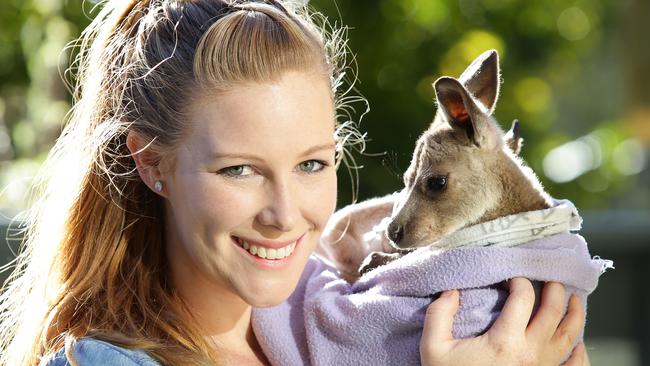
North Shore
Don't miss out on the headlines from North Shore. Followed categories will be added to My News.
ASHLEY Kelly was waking up every two hours to feed baby Ziggy when he first came into her care. But Ziggy isn’t a human baby — he’s an eastern grey kangaroo.
The Taronga Zoo staffer has opened up about her life hand-raising orphaned animals at her home, after caring for almost 100 animals who were left without a mum.
“You do end up fairly sleep-deprived but it is so worthwhile,” she said.
“It’s a lot of fun. They are very affectionate and you get a strong bond. You become very attached very quickly.”
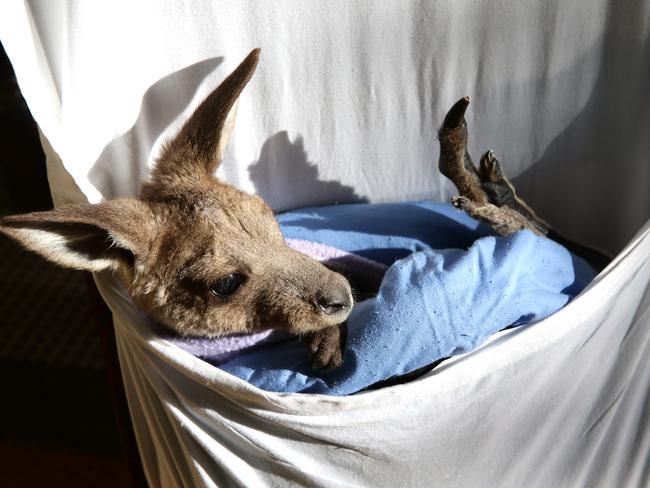
Ziggy was found on the roadside dehydrated, cold and weak after his mother was killed and he needed constant attention.
Unlike their human counterparts, fur babies don’t cry and they sleep in a special flannel pouch. But the young animals need help with the toilet and Ziggy does occasionally wear nappies.
“I do put a nappy on him and cut a hole for the tail. He doesn’t mind,” she said.
SEE THE FUR BABY PHOTOGALLERY HERE
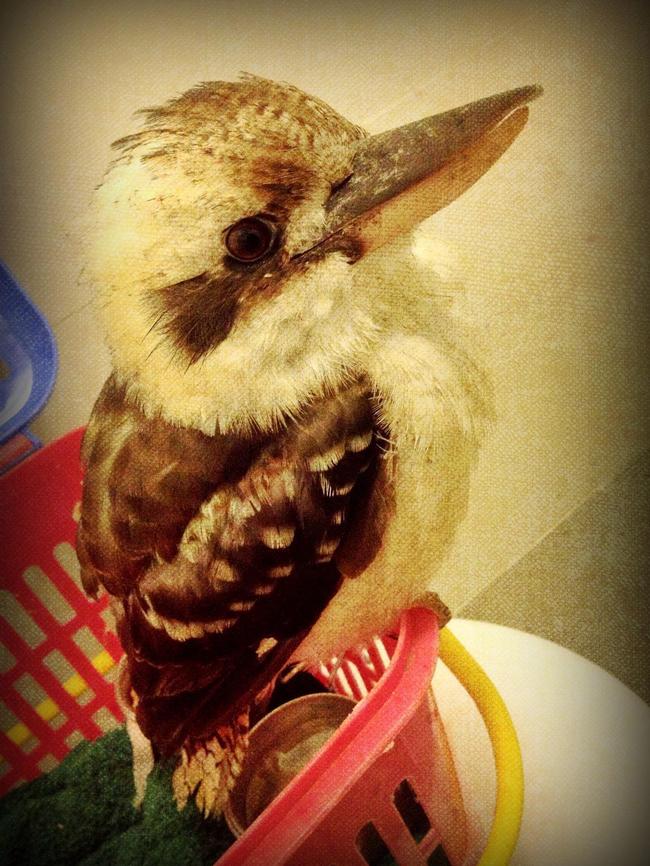
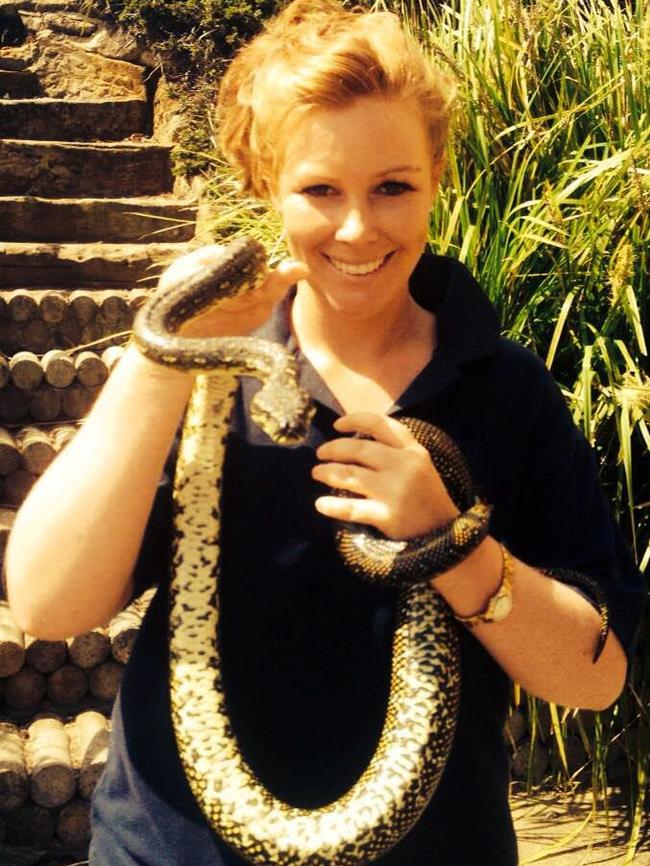
Ziggy is now fed a special milk formula every four hours and once he reaches 3.5kg he will be released back into the wild close to where he was found in Lithgow.
Ms Kelly, from Forestville, is given the animals through her work as a volunteer with Sydney Metropolitan Wildlife Services. She has been caring for orphaned animals for seven years and emphasised that anyone can sign up.
She took part in a training course, which gave her the skills to look after rescued wildlife.
“Anyone can do this,” she said.
“It’s normal for me to have a kangaroo, possum or bandicoot wherever I go.”
PLANS REVEALED FOR $16M TIGER EXHIBIT

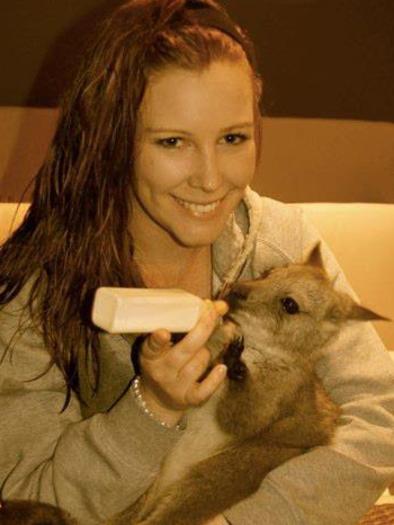
One of her previous ‘children’ is a long-nosed bandicoot called Annie who is now part of the Taronga Zoo family. And her favourite animal over the years was her first: a swamp wallaby called Tigger.
He was with her when she was studying at university and he was even granted his own student ID.
When she went to visit him in Camden she was warned he wouldn’t recognise her but there was an instant connection.
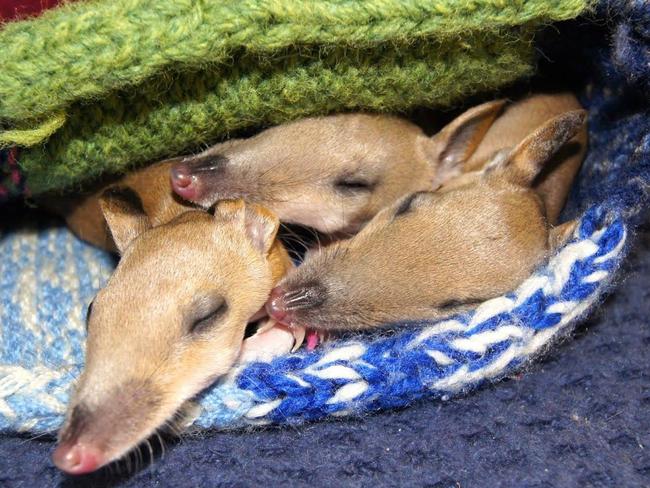
“He came bounding up to me, jumped up and started licking my face,” she said.
Alongside her care work Ms Kelly has also rescued hundreds of wild animals in trouble with the organisation.
“I feel I have a responsibility to them. Lucky enough I have a job that allows me to have animals with me throughout the day.”
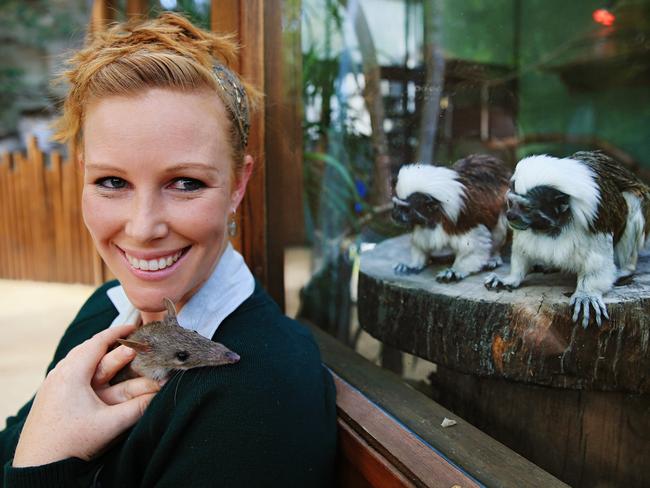
ADVICE FOR HELPING WILDLIFE IN TROUBLE
● Put a towel over the animal
● Keep it warm and in a dark, quiet place
● Take it to the nearest vet who will treat it for free or Taronga Zoo Wildlife Hospital
● Always check roadkill as a baby might be still alive in the pouch


